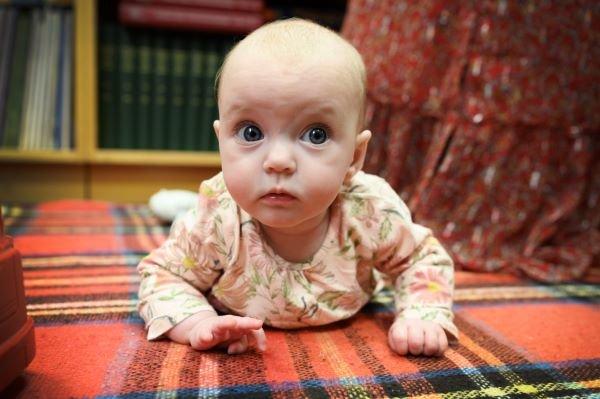One of the first patients to benefit was baby Aurelia Hunt, who became seriously ill after being born prematurely at Colchester Hospital.
Rather than being transferred for treatment in Cambridge, Aurelia was safely cared for in Colchester, with her family able to stay together.
"Staying in Colchester effectively meant we stayed together as a family." James Hunt, Aurelia's father
The technology, developed at Cambridge University Hospitals NHS Foundation Trust (CUH), is a cloud-based platform called LocANTS and enables consultants in Cambridge to monitor babies remotely, so they can read their notes, examine scans and X-rays, and check readings from ventilators, infusion pumps, and other equipment.
The consultants, all part of the Paediatric and Neonatal Decision Support and Retrieval Service (PaNDR), can also control cameras and microphones fitted to workstations in other neonatal units across the region to help doctors with tough decisions.
Livestreamed data from each baby is monitored in the PaNDR control room back in Cambridge, and if a baby's condition deteriorates and is causing concern, the team can quickly transfer the baby by ambulance to a more specialised neonatal critical care unit, such as the one at CUH.
The extra layer of clinical support means more babies can be treated closer to home, which frees up paediatric and neonatal ambulance crews and critical care cots for the sickest babies.
The initiative has already been welcomed by families who know their babies are getting the right care, in the right place, at the right time, and they don’t have the expense, inconvenience, and stress of visiting a different hospital.
Addenbrooke’s and its sister hospital Rosie maternity, which together are Cambridge University Hospitals NHS Foundation Trust, are currently trialing LocANTS at Peterborough, Colchester and Ipswich hospitals.
If it is a success the hope is to roll it out across all Eastern Region hospitals, before making a bid to the NHS to implement it nationwide.
James Hunt, Aurelia's father, said: "It was a huge relief that the technology existed. Had it been different, it would have completely blown our family life for a couple weeks. It was hard enough already and it would have made it even harder."
WATCH: Among the first to benefit has been James and Nicola Hunt and their baby Aurelia.



